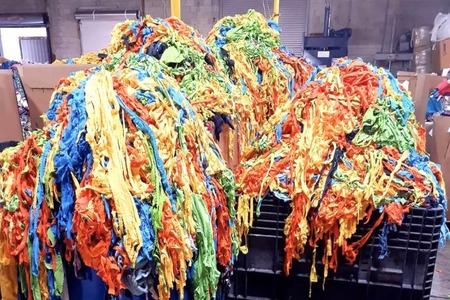
EURATEX welcomes EU ambitions to act on sustainable textiles and investments
YarnsandFibers News Bureau 2022-03-31 11:17:56 – United KingdomThe European Commission (EC) has issued its long-awaited sustainable textile strategy, with the goal of moving the industry toward sustainability. The European Union's (EU) objectives to act on sustainable textiles and investments, in order to transform how textiles are created, chosen, and recovered, have been welcomed by EURATEX.
Given that many European corporations have already chosen this road, the plan should assist them in their endeavor, especially in light of the current energy crisis. The strategy recognizes the strategic relevance of textiles, which are utilized in cars, medical equipment, agriculture, and other applications in addition to garments and furnishings. It recognizes the European industry's proactive initiatives to combat microplastics, address market monitoring difficulties, and develop the necessary skills. For the re-use and recycling of textiles, as well as the establishment of an EU market for secondary raw materials, more cooperation is needed. According to a news release from EURATEX, the ReHubs initiative is creating concepts to capitalize on EPR potential, transform waste into value, and create new capacity and jobs.
In this regard, the proposed "transition pathways," which will put the strategy into action, will be crucial: how will these sustainability targets be met, what will the cost be for SMEs, how can businesses be supported in their green transition, and what will the impact be on global competitiveness? These are critical topics that must be addressed in the months ahead.
The Textile Strategy is part of a larger package that includes up to 16 new legislative measures and policies that will have a direct influence on the textile value chain. The Sustainable Product Initiative Regulation, in particular, contains game-changing rules on the Digital Product Passport, Eco-Design, SMEs, and Green Public Procurement. The Regulation has a lofty goal, and to achieve it, a new approach to collaboration between institutions and businesses is needed, one that builds on lessons learned about data flow throughout value chains, interoperability, conformity assessment, and effective SMEs support measures.
If handled incorrectly, such a massive wave might bring the European textile value chain to a halt due to restrictions, constraints, costs, and an uneven playing field. On the contrary, the upcoming changes have the potential to boost the entire textile ecosystem and create a model for a successful green and digital manufacturing transition that begins in Europe and spreads globally.
Already in 2019, EURATEX urged policymakers to collaborate to remove barriers to the circular economy, resolve the market surveillance conundrum, in which rules are enacted but not enforced, and assist in the creation of scale economies to make sustainable textiles affordable and therefore the norm.
In the EU, for example, 28 billion products circulate each year, making market monitoring authorities, including customs, face a formidable challenge. Through Reach4Textiles, EURATEX has been emphasizing the lack of adequate market surveillance and is actively working on solutions for fair and effective market surveillance of textile products. EURATEX applauds the European Commission's recognition of the importance of market surveillance and the need for more harmonized efforts across the EU.
The establishment of the Digital Product Passport is also welcomed by EURATEX. It has the ability to improve every aspect of the textile value chain, from design to manufacturing to recycling and procurement. At the same time, EURATEX urges co-legislators to consider the role of SMEs in this transition and to propose practical actions that help SMEs across the EU in a methodical manner.
Alberto Paccanelli, EURATEX president, said that EURATEX urges true collaboration with all policymakers and other stakeholders across the value chain to advise, pressure-test, and capitalize on this opportunity for a successful transition. Their goal must be to balance sustainability, resilience, and competitiveness; they know it can be done.
Market Intelligence
Ask for free sample Report

experience
Customer Base
dedicated team
Countries Served Worldwide









